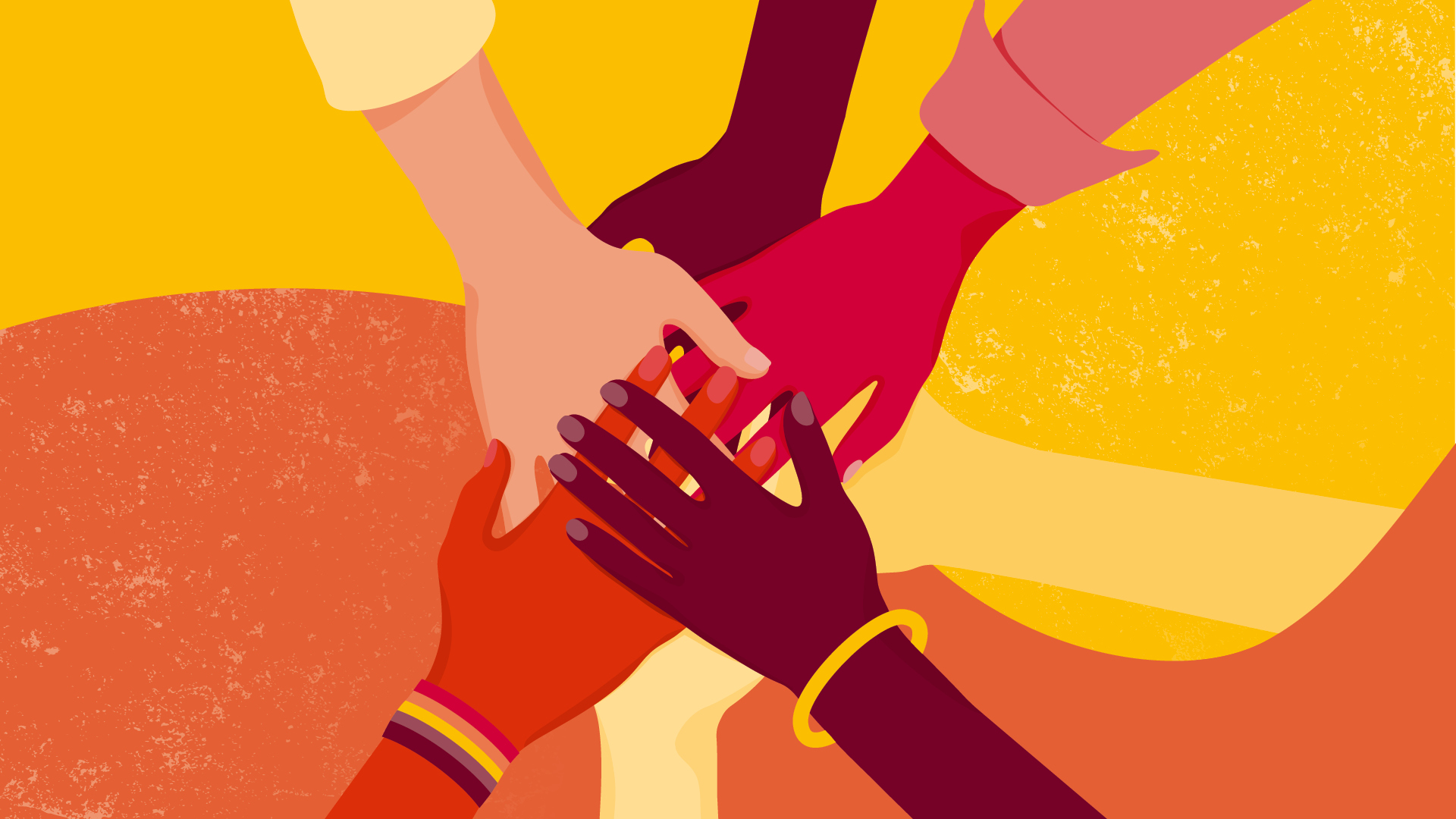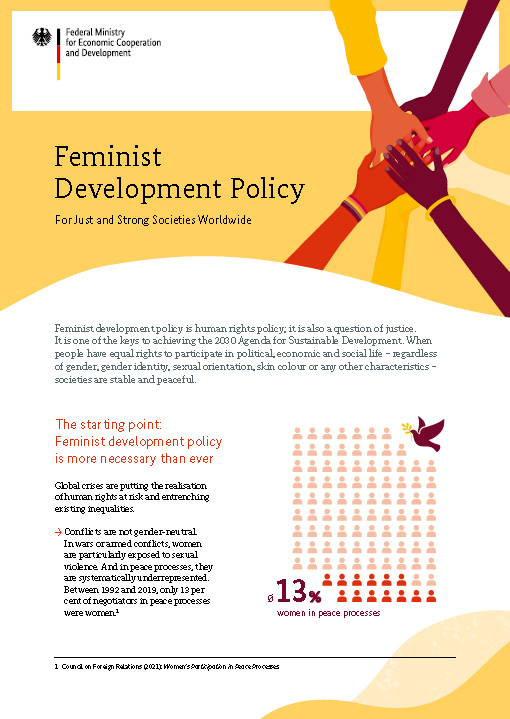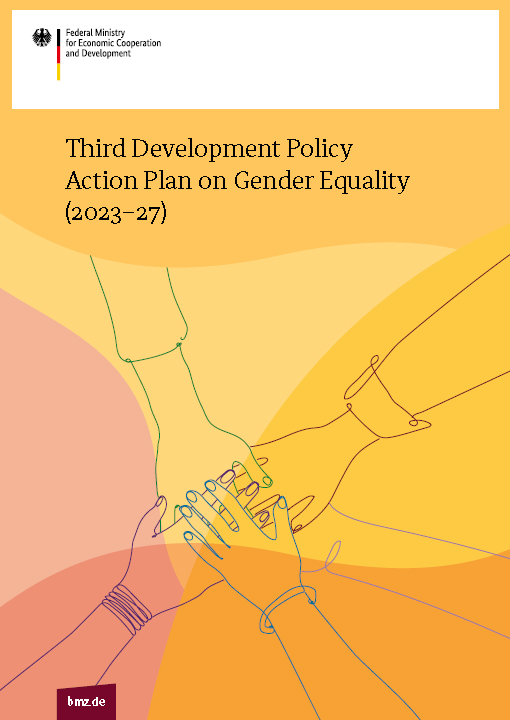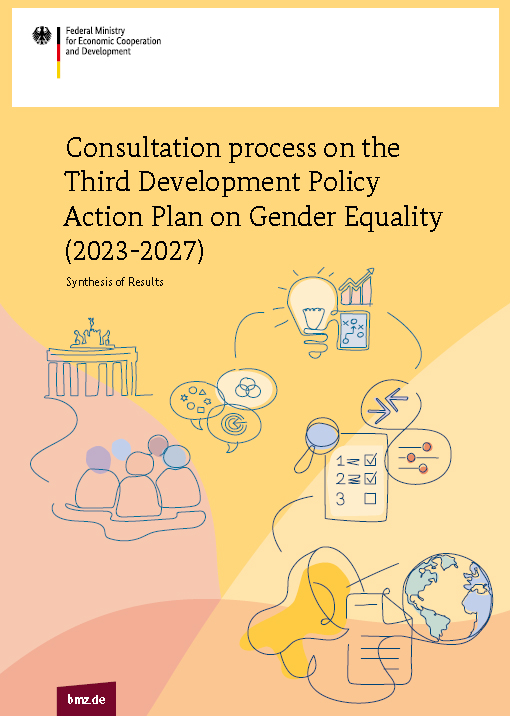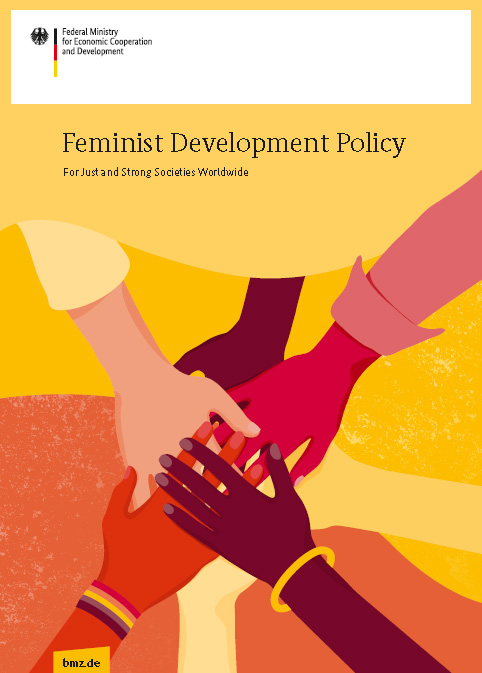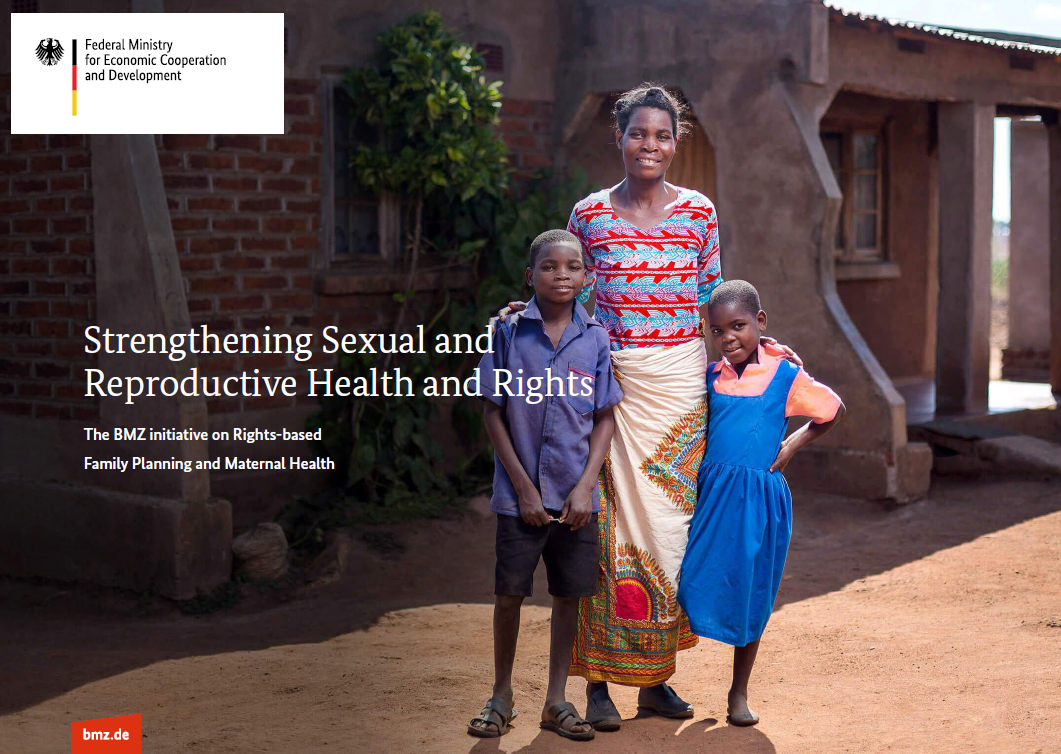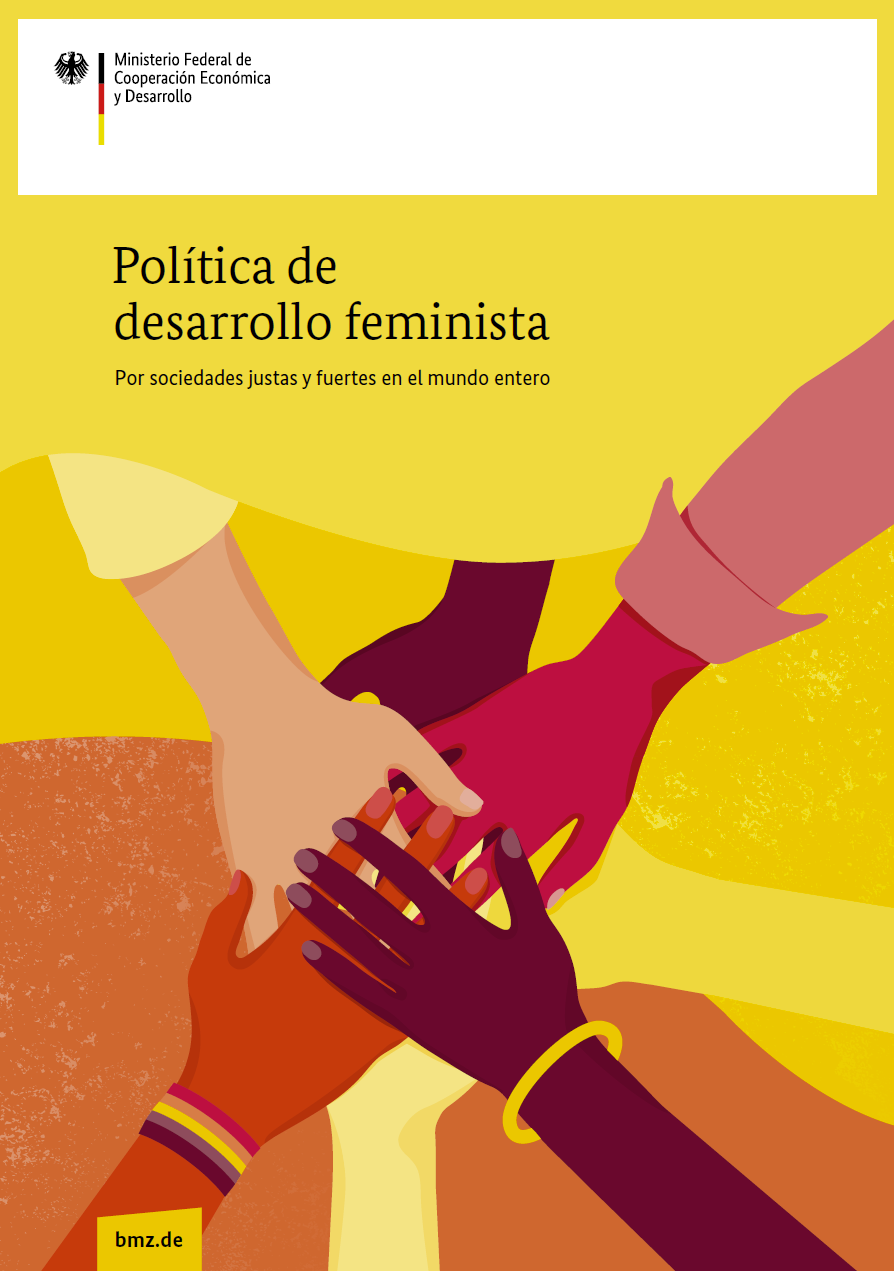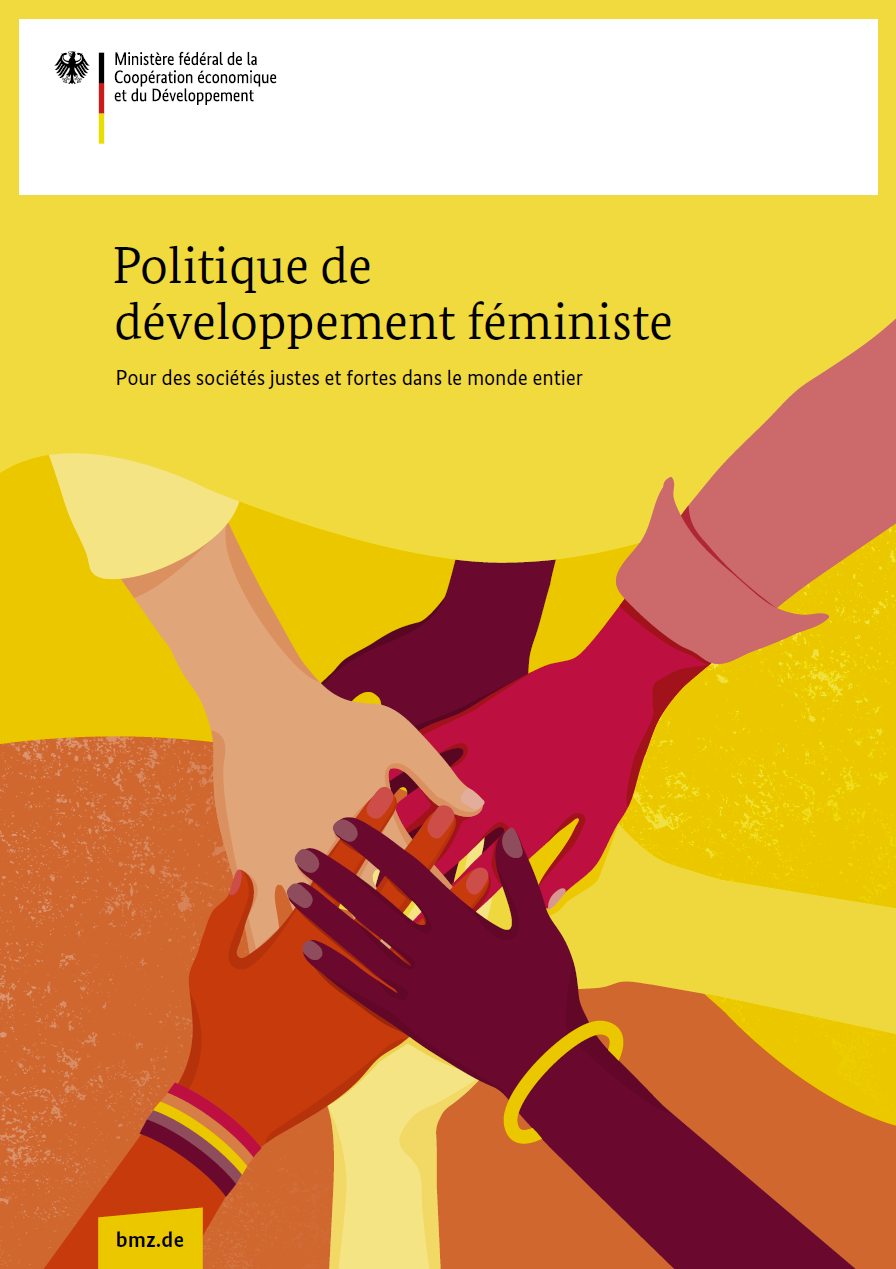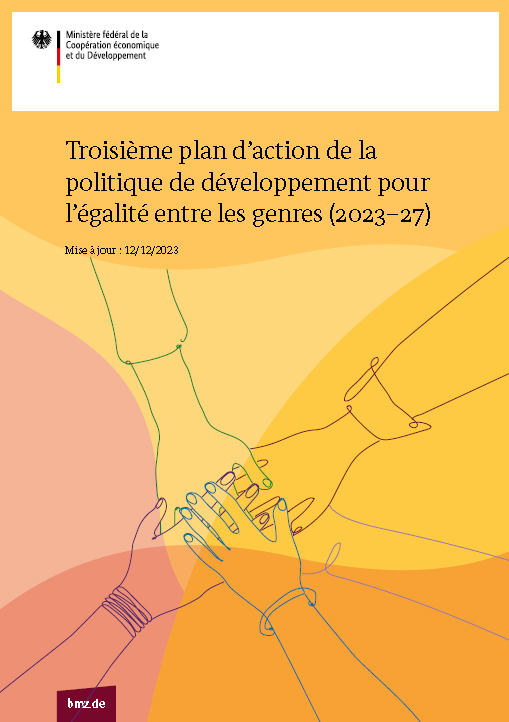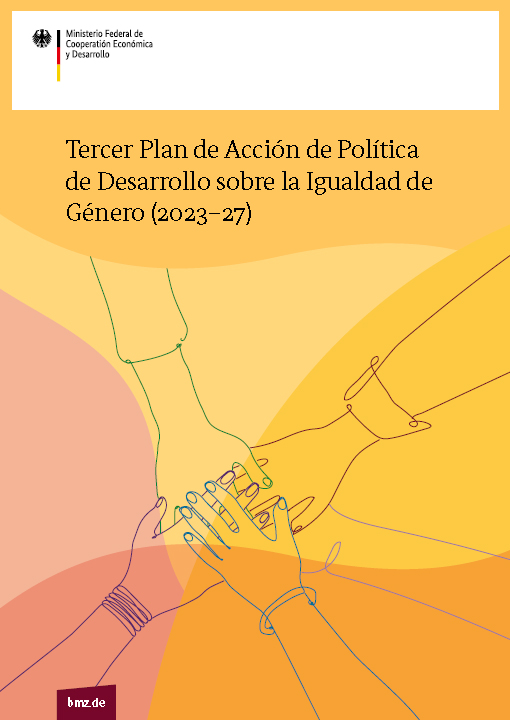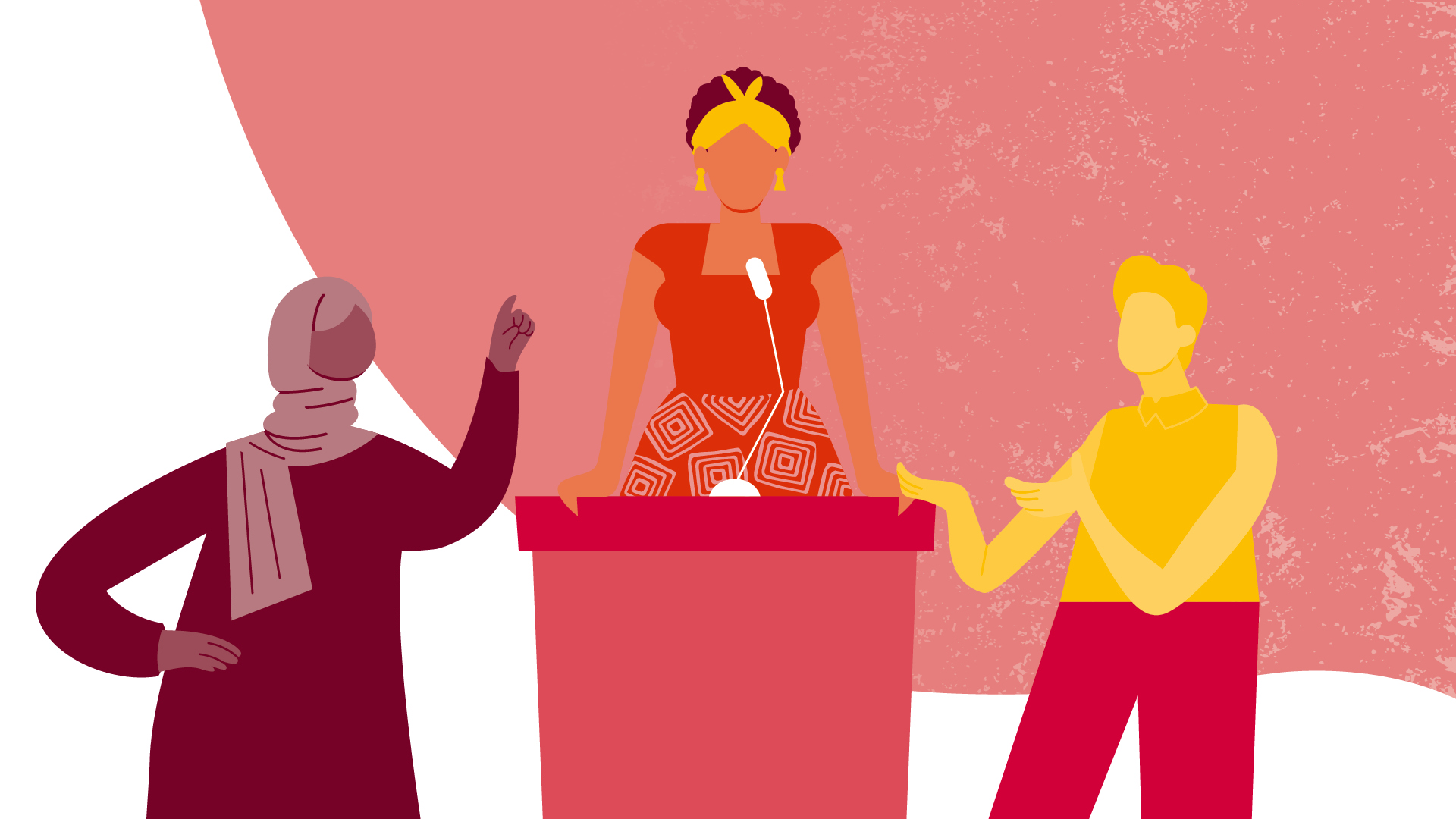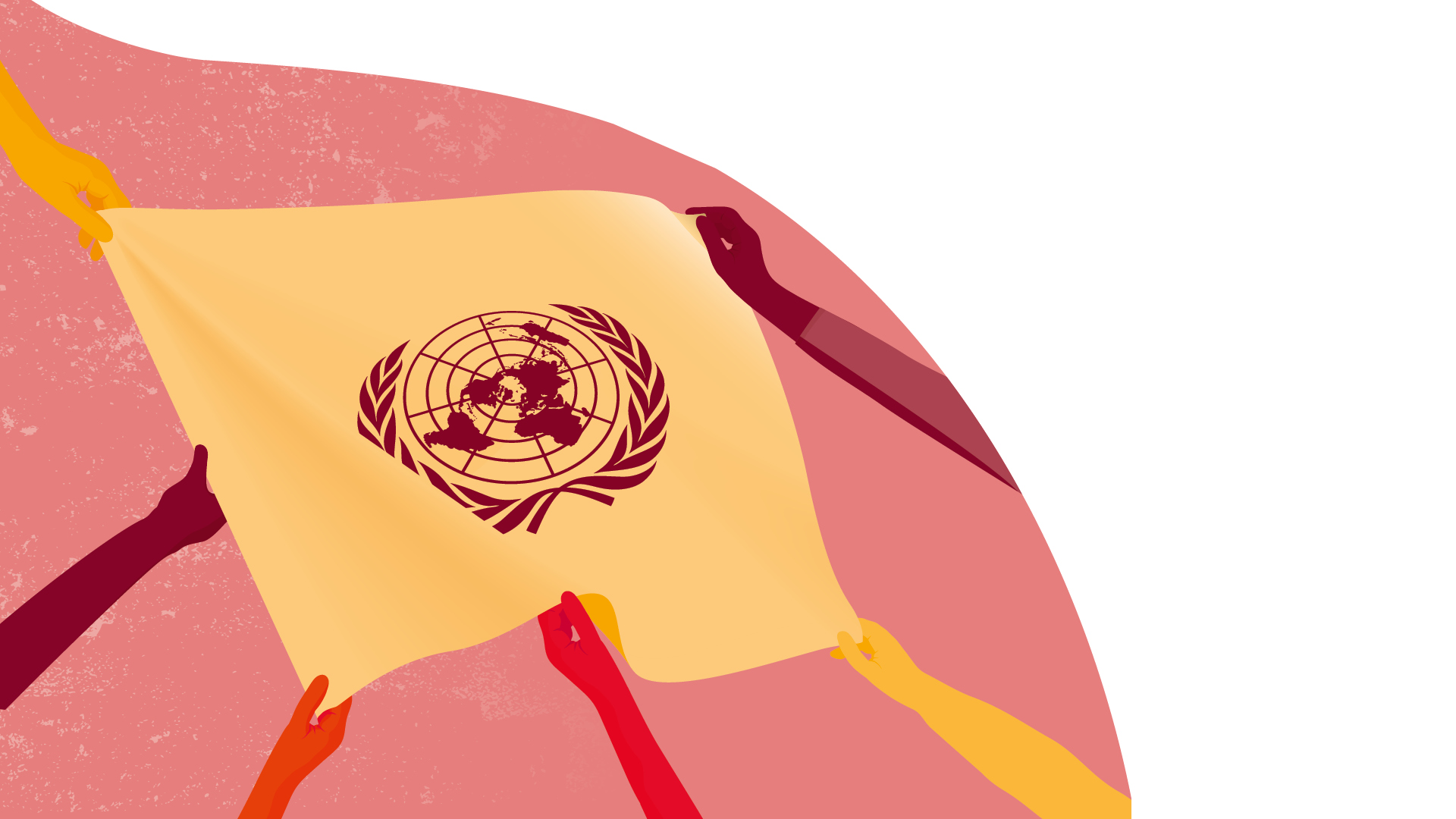Logo: Strategy for a feminist development policy
Copyright© BMZ
Gender equality Feminist development policy – for just and strong societies worldwide
The new strategy on feminist development policy
German development policy plays a role in realising strong and just societies worldwide. It is only societies in which all people enjoy equal participation in political, economic and social life that are stable and peaceful.
Genuine equality has not yet been achieved in any country in the world – even though it is a human right. Around the world people face discrimination and oppression due to their gender, age, religion or for many other reasons. Women and girls are the largest disadvantaged group of people. They frequently experience violence, their rights are restricted in numerous areas, they have fewer resources available to them and they are still not adequately represented in parliaments.
Feminist development policy offers ways of tackling the problems of discrimination and oppression. And it places women at the centre in their important role as knowledge-bearers and decision-makers. At heart this policy is about a global movement for more justice – and about making full use of the potential of all people.
The BMZ’s new strategy on feminist development policy is based upon an in-depth process of consultation. In 2022, the Ministry had intensive exchanges with civil society organisations and experts from the Global South and the Global North.
The BMZ strategy and the guidelines for a feminist foreign policy drawn up by the Federal Foreign Office have been closely coordinated with one another and are complementary.
Strengthening rights, resources and representation
In order to achieve gender equality, the BMZ is focusing on three key areas, known as the “3 Rs”: rights, resources and representation.
Equal rights for all: Women and other disadvantaged groups need, for example, to have the right to self-determination in all areas of planning their lives, and the right to express their own opinion freely and without fear. Discriminatory laws need to be abolished.
Equal representation: Women and other disadvantaged groups need to be able to have a voice and to have an influence on decisions that affect their lives. That is only possible if they also have a seat at the negotiating table, not least in the case of climate negotiations or peace processes.
Engaging at all levels: both internally and externally, from local to global
In order to achieve the goals of its feminist development policy, the BMZ will engage at various levels.
Making development policy feminist: In order to achieve a structural transformation, feminist development policy will be enshrined in all areas of the BMZ’s work. By 2025, more than 90 per cent of newly committed project funds are to be channelled into projects that advance gender equality.
Putting feminist development policy on the international agenda: We cannot achieve change on our own. That is why the BMZ will strengthen its feminist development policy by means of international alliances.
Setting a good example as a ministry: The structures and ways of working in the Development Ministry are also being scrutinised. All BMZ staff members in Germany and abroad are to be equipped to implement feminist principles.
Strong women – strong societies
30 %
increase in agricultural yields thanks to equal access to agricultural inputs
Maternal mortality could be brought down by
2/3
if medical care for women improved
70 %
of health professionals worldwide are women
20 %
increase in likelihood of peace agreements being upheld if women are involved in negotiations
Better education
for women and girls reduces child marriages and unplanned pregnancies.
28 trillion US dollars
increase in global economic growth by 2025 if women enjoy equal participation
Details
- If women had the same access to agricultural inputs as men, yields could increase by up to 30 per cent.
- Maternal mortality could be reduced by as much as two thirds if all women had the access to health care that the World Health Organization (WHO) recommends.
- Women make up 70 per cent of all healthcare staff worldwide. Their expertise was indispensable for overcoming the COVID-19 pandemic.
- When women are actively involved in peace processes, the probability that a peace agreement will last at least two years rises by 20 per cent. It is also more likely that agreements are implemented.
- Child marriages and unplanned early pregnancies drop if women are educated. Education improves maternal and child health, and the nutrition and wellbeing of children.
- A McKinsey Global Institute study has found that 28 trillion US dollars could be added to global economic growth by 2025 if women were to participate in the economy to the same extent as men.
Feminist development policy takes all people into account and tackles the root causes of injustice such as power relations between genders, social norms and stereotypes.
Feminist development policy enhances equality for people of all genders and thus benefits the whole of society – including men.
Feminist development policy is a powerful approach that can take sustainable development forward and assert human rights – worldwide and regardless of gender and any other personal characteristics.
- Toolkit on care work A Toolkit on Paid and Unpaid Care Work: From 3Rs to 5Rs – a BMZ and UN Women Publication External link
- Synthesis of Contributions by Civil Society Consultation Process on the Feminist Development Policy of the Federal Ministry for Economic Cooperation and Development (BMZ) File type PDF | Date of status 12/2022 | File size 293 KB, Pages 10 Pages | Accessibility Accessible
- LGBTI Inclusion Strategy Federal Government LGBTI Inclusion Strategy for Foreign Policy and Development Cooperation File type PDF | Date of status 03/2021 | File size 201 KB, Pages 18 Pages
- Feminist climate policy For resilient societies and a gender-just social-ecological transformation File type PDF | Date of status 10/2024 | File size 1 MB, Pages 2 Pages
As at: 01/03/2023
